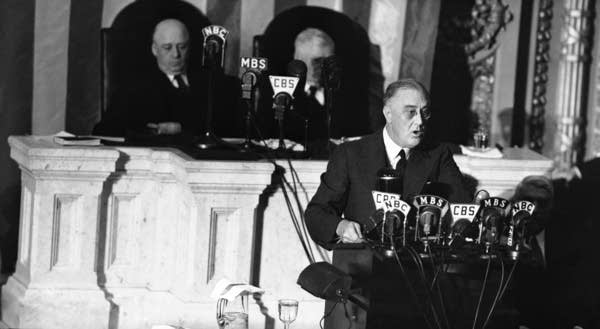Franklin D. Roosevelt and the meaning of freedom

In this Jan. 6, 1941 file photo President Franklin D. Roosevelt addresses a joint session of Congress, with World War II looming.
AP File 1941
Go Deeper.
Create an account or log in to save stories.
Like this?
Thanks for liking this story! We have added it to a list of your favorite stories.


